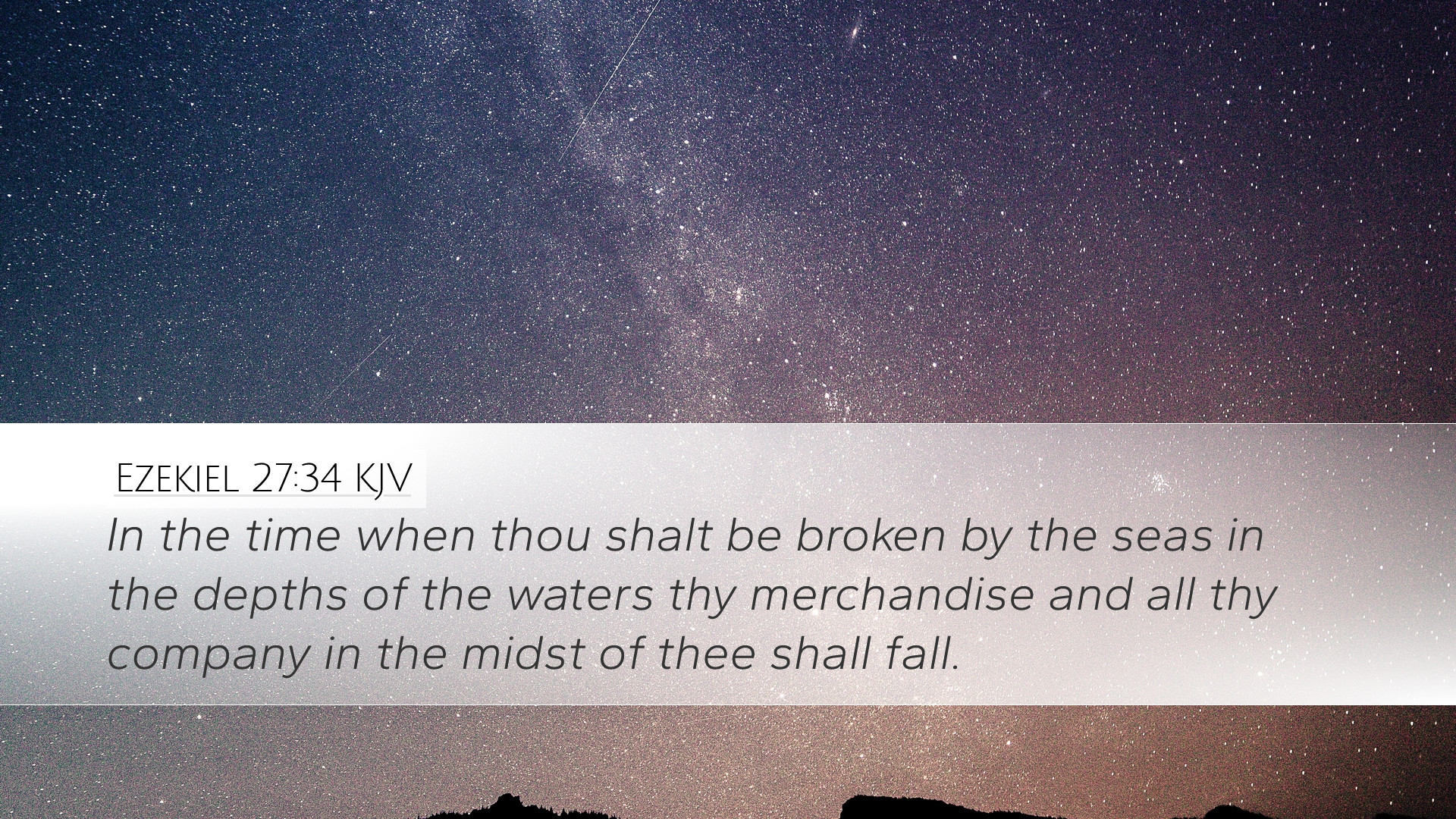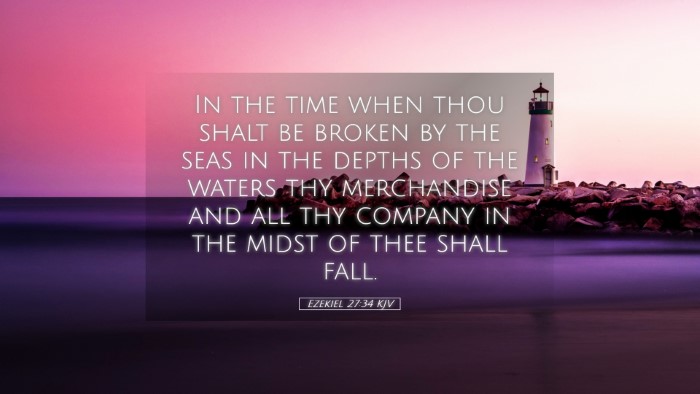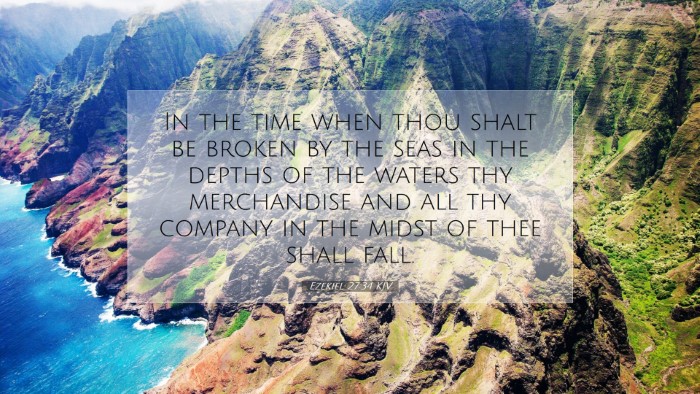Bible Commentary on Ezekiel 27:34
Verse Context: Ezekiel 27:34 states, “And in the time of your ruin, when you shall be broken by the seas in the depths of the waters, your merchandise and all your company in the midst of you shall fall.” This verse is part of a larger passage in which the Prophet Ezekiel delivers a lamentation concerning the city of Tyre, a symbol of commercial wealth and pride.
Overview of Tyre's Significance
The city of Tyre, situated on the Mediterranean coast, was known for its wealth, maritime trade, and sophisticated culture. It served as a major trading hub during ancient times, drawing merchants and ships from various regions. Ezekiel's detailed description reflects a city built on pride and materialism.
Commentary Insights
Matthew Henry’s Commentary
Matthew Henry emphasizes the downfall of Tyre as a metaphor for the inevitable destruction that follows pride and arrogance. He notes that Tyre’s ruin demonstrates the fragility of human enterprise built without regard to divine guidance.
- Divine Judgment: Henry points out that Tyre’s destruction was not merely political or economic but rather a direct judgment from God. The verse highlights how God can bring down even the most prosperous endeavors.
- Futility of Wealth: The loss of Tyre’s goods and merchandise illustrates the temporary nature of material wealth, stressing that earthly treasures cannot afford protection in times of crisis.
Albert Barnes’ Commentary
Albert Barnes elaborates on the imagery used in the verse. He asserts that the “depths of the waters” symbolizes not only physical destruction but also spiritual desolation. In this moment of ruin, the prosperity of Tyre is utterly undone.
- Spiritual Lesson: Barnes highlights that Tyre’s demise serves as a cautionary tale for nations and individuals alike about the risks of relying solely on earthly systems and resources.
- Comprehensive Ruin: The complete breakdown of both commerce and community is underscored, serving as a reminder that the interconnectedness of society means collective consequences following a fall from grace.
Adam Clarke’s Commentary
Adam Clarke provides a thorough explication of the verse within its historical context. He explains that the economic downfall of Tyre was brought about through the actions of neighboring nations and the shifting tides of power.
- Historical Context: Clarke emphasizes the geopolitical shifts and how they lead to Tyre's vulnerability, painting it as a consequence of both divine prophecy and human error.
- Plea for Reflection: Clarke encourages readers to reflect on the spiritual implications of such destruction. He notes that this scripture calls for evaluating personal dependencies and the foundations upon which lives and communities are built.
Theological Considerations
In the broader theological framework, Ezekiel 27:34 invites deep reflection on several key themes:
- God’s Sovereignty: The passage powerfully affirms God's control over nations and their destinies. Tyre’s downfall dispels the illusion of self-sufficiency in the face of divine authority.
- Moral Responsibility: The text calls into question the ethical dimensions of commerce and prosperity. It asks readers to consider how wealth is generated and the moral implications inherent in trade and business practices.
- Hope and Restoration: Although the focus is on calamity, the narrative context around Ezekiel offers hope for restoration, reinforcing the overarching message of divine mercy amidst judgment.
Applications for Today
For pastors, theologians, and scholars, Ezekiel 27:34 serves as a poignant reminder that the foundations of modern society can be just as fragile. Here are a few practical applications:
- Preaching on Idolatry: It provides a rich topic for preaching on contemporary idolatry, where societal dependence on wealth and success often leads to spiritual complacency.
- Teaching Resilience: The passage can be utilized in teaching about resilience in faith amid societal changes and uncertainties, offering a framework for understanding loss and restoration.
- Encouraging Ethical Practices: This commentary invites discussions within congregations on ethical business practices and the importance of aligning community values with scriptural truths.
Conclusion
In conclusion, Ezekiel 27:34 serves as a powerful reminder of the consequences of pride and reliance on material wealth, urging believers to place their trust firmly in God. Through the insights gathered from public domain commentaries, this verse becomes a multifaceted study of judgment, moral clarity, and the unwavering promise of restoration.


